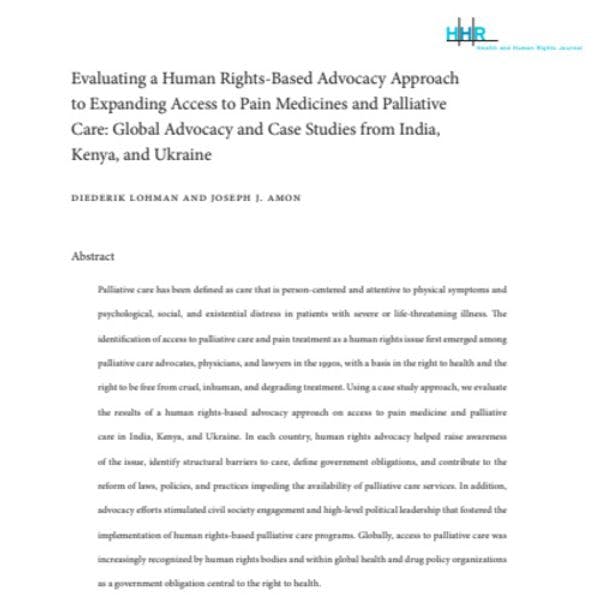Evaluating a human rights-based advocacy approach to expanding access to pain medicines and palliative care: Global advocacy and case studies from India, Kenya, and Ukraine
Palliative care has been defined as care that is person-centered and attentive to physical symptoms and psychological, social, and existential distress in patients with severe or life-threatening illness. The identification of access to palliative care and pain treatment as a human rights issue first emerged among palliative care advocates, physicians, and lawyers in the 1990s, with a basis in the right to health and the right to be free from cruel, inhuman, and degrading treatment.
Using a case study approach, we evaluate the results of a human rights-based advocacy approach on access to pain medicine and palliative care in India, Kenya, and Ukraine. In each country, human rights advocacy helped raise awareness df the issue, identify structural barriers to care, define government obligations, and contribute to the reform of laws, policies, and practices impeding the availability of palliative care services. In addition, advocacy efforts stimulated civil society engagement and high-level political leadership that fostered the implementation of human rights-based palliative care programs. Globally, access to palliative care was increasingly recognized by human rights bodies and within global health and drug policy organizations as a government obligation central to the right to health.
Keep up-to-date with drug policy developments by subscribing to the IDPC Monthly Alert.
